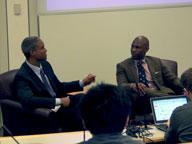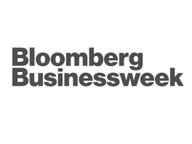Faculty News
—
Profs. Andrea Frazzini and Lasse Pedersen's research on Warren Buffett's investments is cited
—

Excerpt from MarketWatch -- "The study — entitled Buffett’s Alpha — was published last November by the National Bureau of Economic Research. Its authors, all of whom boast strong academic credentials, work for AQR Capital Management, a money management firm: Andrea Frazzini and Lasse Pedersen, both finance professors at New York University, and David Kabiller, one of AQR’s founders."
Faculty News
—

Excerpt from MarketWatch -- "The study — entitled Buffett’s Alpha — was published last November by the National Bureau of Economic Research. Its authors, all of whom boast strong academic credentials, work for AQR Capital Management, a money management firm: Andrea Frazzini and Lasse Pedersen, both finance professors at New York University, and David Kabiller, one of AQR’s founders."



















